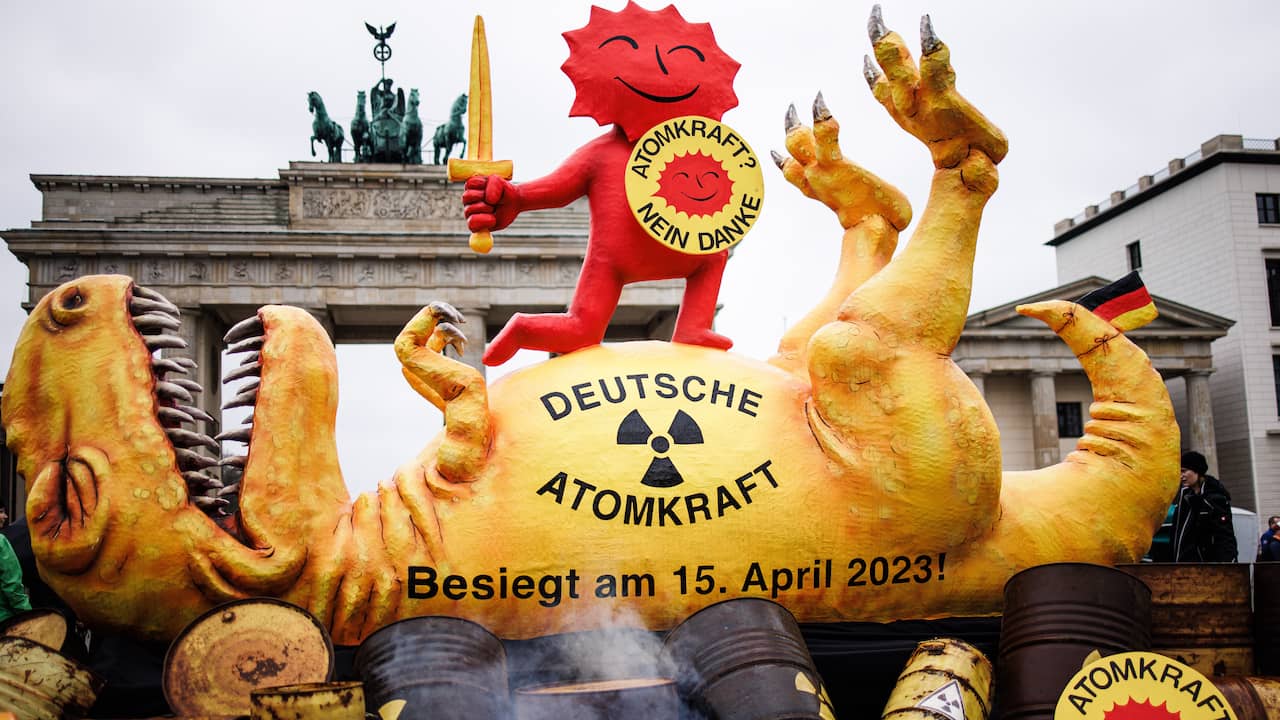The last nuclear power plants in Germany closed at midnight on Saturday. Environmentalists gathered across the country to celebrate. It was not a party everywhere, because opponents protested.
At the Brandenburg Gate in Berlin and several other places in Germany, festivals and celebrations were held on Saturday to celebrate the historic step.
Environmental organization Greenpeace spoke of a “good day” for climate protection and a “huge success for the antinuclear movement of the past forty years”.
Political parties also announced on Saturday that they are happy that the power stations will close permanently. The leader of the Greens, Ricarda Lang, said on Twitter that the phase-out of nuclear energy represents the “final entry into the renewable energy era”. “Nuclear energy? And goodbye,” tweeted the parliamentary group of the German Social Democrats (SPD).
The last three nuclear power plants in Germany closed just before midnight. These are the Isar 2 in the state of Bavaria, Emsland in Lower Saxony and Neckarwestheim 2 in Baden-Württemberg.
Germany decided in 2011 to stop using nuclear energy
The closure follows a 2011 decision to phase out nuclear power. However, the decision is controversial due to the current energy crisis. Two of the power plants were to be closed at the end of last year.
However, due to the Russian invasion of Ukraine and the ensuing energy crisis, the German government decided to postpone these closures until after the winter.
The liberal ruling party FDP is one of the opponents of the closure. “It’s no secret that we would have preferred it to happen a year later,” the party tweeted on Saturday. The FDP also wanted the last three nuclear reactors to remain operational after the shutdown. In case of an emergency, these reactors could then be used again quickly.

